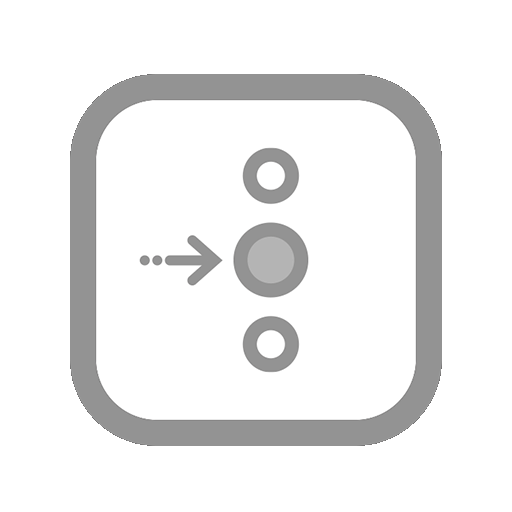![]()
In this chapter, you’ll learn:
The significance of values and ethics in providing nursing care
How to approach ethical dilemmas in patient care
The nurse’s role and responsibilities in ensuring patients’ rights
The difference between intentional and unintentional torts.
Values are strongly held personal and professional beliefs about worth and importance. The word values derives from the Latin valere (to be strong). Values are key to developing ethical consciousness and guide us in making important life decisions. Because values are highly individualized yet subject to influence from outside sources, it isn’t surprising that value conflicts are common among nurses, doctors, patients, families, and health care facility administrators.
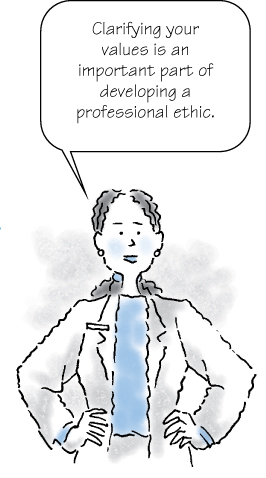
Clarifying your own values is an important part of developing a professional ethic. A person may become more aware of their values by consciously examining their statements and behavior.
Developing values awarenessNurses, like all people, sometimes rely on hearsay, opinions, or prejudice instead of developing a strong sense of their own values. Sometimes, they don’t stop to reflect on the values that are mirrored in their conversation and behavior.
Consider the following dialogue in which three nurses express various value judgments. As you read, ask yourself: What values does each nurse express? Do the values of the three conflict? Are individual nurses expressing consistent values? Do they show a high regard for patient autonomy?
| Shop talk Kate: I can’t believe it. I have to float to the ICU—and it’s only my second week on the job. I hate floating, especially to intensive care. Dean: So do I. The last time I floated to ICU, I was assigned to a 300-lb patient who had been driving drunk and wasn’t wearing a seat belt. The guy was badly hurt, and I had to do all the positioning myself because the unit was so short-staffed. I just about killed my back. It isn’t fair that they always assign male nurses to obese patients. Pat: Floating is really a tough issue. I try to see it from the patient’s side, though. I mean maybe you were assigned to care for this patient because you’re a good nurse and could give him the best care. Kate: What bugs me is having to care for patients like that drunk driver, who obviously don’t care how they live. They don’t watch their weight, they drive drunk, they don’t use seat belts, and we get pulled from the work we’re comfortable with to care for them. I can’t even find time for a cigarette break. Pat: Don’t forget, Kate, we’re supposed to take care of patients regardless of their health habits or lifestyle. No one’s perfect, after all. Kate: Yeah, I guess you’re right, but floating makes me nervous anyway. I’m scared I’ll really mess up because everything’s so unfamiliar. Dean: Let me give you some advice. No matter what you think about floating, don’t say anything. If you’re pegged as a complainer around here, your career is over. Pat: You sound like you think nurses shouldn’t ever speak out if something is wrong with the system. I think nurses do have the power to change things for the better, but that won’t happen if we aren’t willing to take some risks. Dean: You’re an idealist. I’m a realist. I ask, what’s worth risking your job? Pat: I think being a nurse means not being willing to compromise your standards of care just to keep a job. Kate: What happened to the 300-lb patient? Is he still in ICU? Do you think I might get assigned to him? Dean: Well, no. It’s the craziest thing. He was a quadriplegic after the accident. So we put all this time and effort into stabilizing his condition and keeping him infection-free, and one day, the doctor decides it isn’t worth it, so they just turned everything off. Now I ask you, is that right? |
| Examining values The nurses in this scenario make various moral judgments. By analyzing their attitudes, you can come to a better understanding of your own values:
|
Each nurse and patient brings values to the health care system. These values include beliefs about such concepts as life, death, a higher power, and who should and shouldn’t receive health care as well as such complex issues as organ transplantation and the right to die. The patient’s values may change when they are faced with illness, injury, and possible death.
Values clarification refers to the process of raising consciousness so that value conflicts can be resolved. You’re likely to encounter many conflicting sets of values in the course of your professional career. To provide optimal support to the patient, you must undergo your own values clarification process.
Exercises, such as analyzing conversations between coworkers, offer one way to clarify values. Reflecting on one’s own statements and actions is another way.
You must choose among competing values to establish your own. Then you need to incorporate chosen values into your everyday thoughts and actions. You’ll then be better prepared to act on chosen values when you’re confronted with difficult choices.
Making values decisions need not be haphazard. By clarifying your own values and checking to see if they’re consistent with the established standards of the nursing profession, you can enhance your ability to make responsible judgments.
Ethics is defined as conduct appropriate for all members of a group. Health care workers today deal with many ethics issues. These issues have risen as a result of technology and increased knowledge about disease and the body’s reaction to disease.

A code of ethics is a group of fundamental beliefs about what’s morally right or wrong, along with reasons for maintaining those beliefs.
Ethical codes for nursesTwo of the most important ethical codes for registered nurses are the American Nurses Association (ANA) code and the Canadian Nurses Association (CNA) code. Licensed practical nurses (LPNs) also have an ethical code. The International Council of Nurses (ICN), an organization based in Geneva, Switzerland, that seeks to improve the standards and status of nursing worldwide has also published a code of ethics.
| ANA code of ethics The ANA views nurses and patients as individuals who possess basic rights and responsibilities and whose values and circumstances should command respect at all times. The ANA code provides guidance for carrying out nursing responsibilities consistent with the ethical obligations of the profession. According to the ANA code, the nurse:
|
| CNA code of ethics The CNA code consists of eight primary values that form the basis of nursing obligations:
|
| Code for LPNs The code for LPNs seeks to provide a motivation for establishing, maintaining, and elevating professional standards. This code requires these nurses to:
|
| ICN code of ethics According to the ICN, the fundamental responsibility of the nurse is fourfold:
The ICN further states that the need for nursing is universal. Inherent in nursing is respect for life, dignity, and the rights of humanity. It’s unrestricted by considerations of nationality, race, color, age, gender, politics, or social status. |
| Nurses and people |
| The nurse’s primary responsibility is to people who require nursing care. |
| The nurse, in providing care, respects the beliefs, values, and customs of the individual. |
| The nurse holds in confidence personal information and uses judgment in sharing this information. |
| Nurses and practice |
| The nurse carries personal responsibility for nursing practice and maintaining competence by continual learning. |
| The nurse maintains the highest standards of nursing possible within the reality of a specific situation. |
| The nurse uses good judgment in relation to individual competence when accepting and delegating responsibilities. |
| The nurse, when acting in a professional capacity, should at all times maintain standards of personal conduct that would reflect credit upon the profession. |
| Nurses and society |
| The nurse shares with other citizens the responsibility for initiating and supporting actions to meet the health and social needs of the public. |
| Nurses and coworkers |
| The nurse sustains a cooperative relationship with coworkers in nursing and other fields. |
| The nurse takes appropriate actions to safeguard the patient when his care is endangered by a coworker or another person. |
| Nurses and the profession |
| The nurse plays the major role in determining and implementing desirable standards of nursing practice and nursing education. |
| The nurse is active in developing a core of professional knowledge. |
| The nurse, acting through the professional organization, participates in establishing and maintaining equitable social and economic working conditions in nursing. |
The American Nurses Association (ANA) has established a code of ethics. The ANA Code of Ethics for Nurses guides the practicing nurse in how to use their professional skills to provide the most effective holistic care possible, such as serving as a patient advocate and striving to protect the health, safety, and rights of each patient.
The Health Insurance Portability and Accountability Act (HIPAA) of 1996 went into effect in the spring of 2003 to strengthen and protect patient privacy. Health care providers (such as doctors, nurses, pharmacies, hospitals, clinics, and nursing homes), health insurance plans, and government programs (such as Medicare and Medicaid) must notify patients about their rights to privacy and how their health information will be used and shared. This health information includes information in the patient’s medical record, conversations about the patient’s care between health care providers, billing information, and the health insurer’s computerized records.

Under HIPAA, the patient has the right to access their medical information, know when health information is shared, and make changes or corrections to their medical record. Patients also have the right to decide if they want to allow their information to be used for certain purposes, such as for marketing or research.
Patient records with identifiable health information must be secured so that they aren’t accessible to those who don’t have a need for them. Identifiable health information may include the patient’s name, Social Security number, medical record number, birth date, admission and discharge dates, and health history.
Social media is defined as “a form of electronic communication through which users create online communities to share information, ideas, personal messages, and other content (as videos).” It is the nurse’s responsibility to know their employer’s policies regarding the use of social media in the workplace. Nurses also need to be cognizant that unauthorized disclosure of a patient’s personal information via social media outside of the work place may result in a violation of patient privacy and confidentiality.
When a patient receives health care, they must sign an authorization form before protected health information can be used for purposes other than routine treatment or billing. The form should be placed in the patient’s medical record.
Every day, nurses make ethical decisions in their nursing practice. These decisions may involve patient care, actions related to coworkers, or nurse–doctor relationships. At times, you may find yourself trapped in the middle of an ethical dilemma, pulled in every direction by your duties and responsibilities to your patient, your employer, and yourself. Even after you make a decision, you may ask yourself, “Did I make the right decision?”
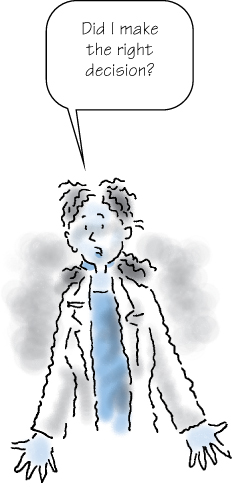
There are no automatic solutions to all ethical conflicts. Although such conflicts may be painful and confusing, particularly in nursing, you don’t have to be a philosopher to act ethically or to make decisions that fall within nursing’s ethical codes. Nonetheless, you need to understand the principles of ethics that guide your nursing practice. Legally, nurses are responsible for using their knowledge and skills to protect the comfort and safety of their patients. Ethically, nurses, in their role as patient advocates, are responsible for safeguarding their patients’ rights.
Although a nurse isn’t legally responsible for obtaining a patient’s informed consent, for example, the nurse is ethically responsible as the patient’s advocate for reporting to the doctor a patient’s misunderstanding about treatment or withdrawal of consent. To be an effective advocate, a nurse must understand the ethical and legal principles of informed consent, including that the patient’s consent isn’t valid unless they understand their condition, the proposed treatment, treatment alternatives, potential risks and benefits, and relative chances of success or failure.
Rapid advances in medical research have outpaced society’s ability to solve the ethical problems associated with new health care technology. For nurses, ethical decision making in clinical practice is complicated by sociocultural factors, legal controversies, growing professional autonomy, and consumer involvement in health care.
Major areas of ethical conflict may include end-of-life decisions, determining medical futility, withholding or withdrawing treatment, advance directives, and organ donation. No matter what your nursing specialty, you’ll probably encounter at least one of these conflicts during your nursing career.
End-of-life decisions are almost always difficult for patients, families, and health care professionals to make. Nurses are in a unique position as patient advocates assisting patients and their families through the process of death.
Your primary role as a patient advocate is to promote the patient’s wishes. In many instances, however, the patient’s wishes aren’t known. That’s when ethical decision making takes priority. Decisions aren’t always easy to make, and the answers aren’t usually clear-cut. At times, such ethical dilemmas may seem unsolvable.
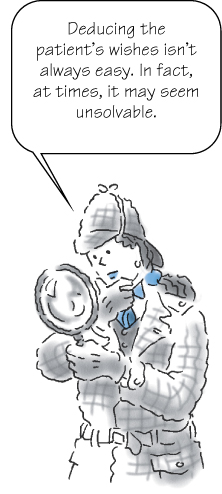
It’s sometimes difficult to determine what can be done to achieve a good quality of life and what can simply be achieved technologically speaking.
Years ago, death was considered a natural part of life and most people died at home, surrounded by their families. Today, most people die in hospitals, and death is commonly regarded as a medical failure rather than a natural event. Sometimes, it’s hard to know whether you’re assisting in extending the patient’s life or merely delaying the patient’s death.
Most hospitals have ethics committees that review ethical dilemmas. The nurse may consider consulting the ethics committee if:
The doctor disagrees with the patient or their family regarding treatment
Health care providers disagree among themselves about treatment options
Family members disagree about what should be done.
The ethics committee addresses ethical issues regarding the clinical aspects of patient care. It provides a forum for the patient, his family, and health care providers to resolve conflicts.
The functions of an ethics committee include:
Policy development (such as developing policies to guide deliberations over individual cases)
Education (such as inviting guest speakers to visit your health care facility and discuss ethical concerns)
Case consultation (such as debating the prognosis of a patient who’s in a persistent vegetative state)
Addressing a single issue (such as reviewing all cases that involve a no-code or do-not-resuscitate [DNR] order)
Addressing problems of a specific population group (e.g., the American Academy of Pediatrics recommending that hospitals have a standing committee called the “infant bioethical review committee”)
Addressing issues of organization ethics (such as business practice, marketing, admission, and reimbursement).
| Pros and cons Properly run, an ethics committee provides a safe outlet for venting opposing views on emotionally charged ethical conflicts. The committee process can help lessen the bias that interferes with rational decision making. It enables members of disparate disciplines, including doctors, nurses, clergy, social workers, hospital administrators, and ethicists, to express their views on treatment decisions. Critics of the ethics committee think that committee decision making is too bureaucratic and slow to be useful in clinical crises. They also point out that one dominating committee member may intimidate others with opposing views. Furthermore, they contend that doctors may view the committee as a threat to their autonomy in patient-care decisions. For these reasons, many ethics committees use a “rapid response team” of committee members who are on call to respond quickly in emergent ethical dilemmas. The rapid response team usually consists of three or four committee members, including a doctor, who have had special training in negotiation and mediation. The entire committee will then review each case. |
| Selection of committee members Committee members should be selected for their ability to work cooperatively in a group. The American Hospital Association recommends the following ratio of committee members: one-third doctors, one-third nurses, and one-third others, including laypersons, clergy, and other health professionals. Regulations of the Joint Commission on Accreditation of Healthcare Organizations require that nursing staff members participate in the hospital ethics committee. |
| The nurse’s role on a hospital ethics committee Because of the nurse’s close contact with the patient, their family, and other members of the health care team, the nurse is commonly in a position to identify ethical dilemmas, such as when a family is considering a DNR order for a relative. In many cases, the nurse is the first to recognize conflicts among family members or between the doctor and the patient or his family. Before ethics committees were widely used, nurses had no official outlet for voicing their opinions in ethical debates. In many situations, doctors made ethical decisions about patient care behind closed doors. Nursing supervisors would commonly call meetings to alert nursing staff about treatment decisions and discourage protest. Now, ethics committees provide nurses with an avenue to express their views, hear the opinions of others, and understand more deeply the rationale behind ethical decisions. |
Medical futility refers to treatment that isn’t likely to benefit the patient even though it may appear to be effective. For example, a patient with a terminal illness who’s expected to die experiences cardiac arrest. Cardiopulmonary resuscitation (CPR) may be effective in restoring a heartbeat but may be deemed futile because it doesn’t change the patient’s outcome. CPR must be initiated unless written otherwise by the patient or doctor’s order.
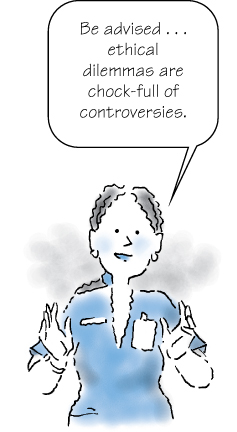
The issue of withholding or withdrawing treatment can certainly present some ethical dilemmas. When withdrawing treatment from a patient—even at the patient’s request—controversy over the principle of nonmaleficence (to prevent harm) exists.
Such controversy revolves around the definition of harm. Some feel that removing a patient from a ventilator and allowing death is an intentional infliction of harm. Others argue that keeping a person on a ventilator against the patient’s will—thus prolonging death—is an intentional infliction of harm.
| Approaching ethical decisions When faced with an ethical dilemma, consider these questions:
|
In cases of cardiac arrest (sudden stoppage of the heart), a critically ill patient may be described by a code status. This code status relates the orders written by the doctor describing what resuscitation measures should be carried out by the nurse and should be based on the patient’s wishes regarding resuscitation measures. When cardiac arrest occurs, you must ensure that resuscitation efforts are initiated or that unwanted resuscitation doesn’t occur.
The wishes of a competent, informed patient should always be honored. However, when a patient can’t make decisions, the health care team—consisting of the patient’s family, nursing staff, and doctors—may have to make end-of-life decisions for the patient.
Most people prefer to make their own decisions regarding end-of-life care. It’s important that patients discuss their wishes with their loved ones; however, many don’t. Instead, total strangers may be asked to make important health care decisions when a patient can’t do so. That’s why it’s important for people to make choices ahead of time and to make these choices known by developing advance directives.
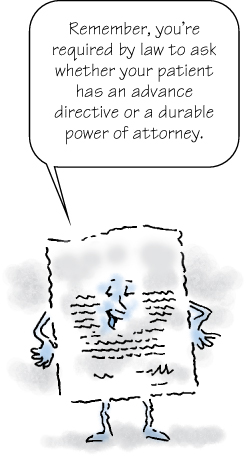
The Patient Self-Determination Act of 1990 requires hospitals and other institutions to make information available to patients on advance directives. However, it isn’t mandatory for patients to have advance directives.
There are two types of advance directive:
treatment directive, sometimes known as a living will
appointment directive, sometimes known as a durable power of attorney for health care.
A living will states what treatments a patient will accept and refuse in case terminal illness renders the patient unable to make those decisions at the time. For example, a patient may be willing to accept artificial nutrition but not hemodialysis.
Durable power of attorney is the appointment of a person chosen by the patient to make decisions on the patient’s behalf if the patient can no longer do so. Durable power of attorney for health care doesn’t give the chosen individual authority to access business accounts; the power is strictly related to health care decisions.
After an advance directive is written, two witnesses must sign it. This document can be altered or canceled at any time. For more information, check the laws regarding advance directives for your state in which you practice.
When asked, most people say that they support organ donation. However, only a small percentage of qualified organs are ever donated. Tens of thousands of names are on waiting lists for organs in the United States alone. Organ transplantation is successful for many patients, giving them additional, high-quality years of life.
The Uniform Anatomical Gift Act governs the donation of organs and tissues. In addition, most states have legislation governing the procurement of organs and tissues. Some require medical staff to ask about organ donation on every death. Other states require the staff to notify a regional organ procurement agency that then approaches the family. Become familiar with the state laws and the policies of the facility in which you practice.
Medical criteria for organ donation vary from state to state. Many organ procurement agencies want to be notified of all deaths and imminent deaths so that they, not the medical staff, can determine whether the patient is a potential candidate for organ donation.
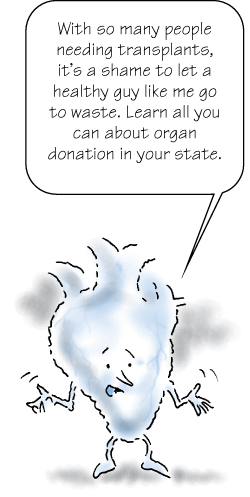
These conditions usually preclude any organ or tissue donation:
Advanced age
Metastatic cancer
History of hepatitis, HIV, or AIDS
Sepsis.
When ethical problems arise, discuss them candidly with other members of the health care team, especially the patient’s doctor. Also, consider calling on social workers, psychologists, the clergy, and ethics committee members to help you resolve difficult ethical problems. By learning as much as possible, you can facilitate the decision-making process for the patient, his family, his doctor, and yourself.
Laws are binding rules of conduct enforced by authority. Ideally, laws are based on what’s right and good. Realistically, though, the relation between laws and ethics is complex. When a law is challenged as unjust or unfair, the challenge usually reflects some underlying clinical principle. Even so, there’s a strong connection between ethics and laws regarding the nurse’s role as a patient advocate. Most nurses realize that many malpractice suits result from a patient’s dissatisfaction with care. When a patient believes he hasn’t been treated with respect or dignity or that his needs and rights have been ignored or violated, he’s more likely to initiate legal action.
Torts are personal civil injuries that reside outside a contractual relationship. Torts result in a civil trial to assess compensation for the plaintiff. Torts can be intentional or unintentional.

Intentional torts include fraud, assault and battery, invasion of privacy, false imprisonment, and defamation of character.
Unintentional torts include negligence and malpractice. Negligence is a mistake or the failure to be careful. Malpractice is defined as a professional person’s wrongful conduct, improper discharge of professional duties, or failure to meet standards of care that results in harm to another person.
Patients typically file malpractice lawsuits against nurses when they perceive their nursing care to be substandard or the cause of unforeseeable injuries. Keep in mind, however, that malpractice is more than an undesired outcome; in order for a patient to successfully file a malpractice lawsuit against a nurse, there must be evidence that some action or inaction that the nurse was obligated to perform resulted in harm to the patient. If the patient doesn’t have compelling evidence, they may still file the suit, but the court may find the suit to be frivolous and the suit will generally be unsuccessful.
The practice of nursing requires rules and regulations to ensure patient safety and a competent level of behavior in the professional role as a nurse. Nursing licensure allows you to practice as a professional nurse. Standards of nursing practice help ensure high-quality care and serve as criteria in legal questions of whether adequate care was rendered.
Your nursing license entitles you to practice as a professionally qualified nurse. However, like most privileges, your nursing license imposes certain responsibilities. As a licensed registered nurse (RN), or licensed practical nurse (LPN), you’re responsible for providing quality care to your patients. To meet this responsibility and protect your right to practice, you must understand the professional and legal significance of your nursing license.
Each nurse practice act contains licensing laws. They establish qualifications for obtaining and maintaining a nursing license. They also broadly define the legally permissible scope of nursing practice. Although they vary from state to state, most licensing laws specify:
Qualifications a nurse must have to be granted a license
License application procedures for new licenses and reciprocal (state-to-state) licensing arrangements
Application fees
Authorization to use the title of Registered Nurse, Licensed Practical Nurse, or Vocational Nurse to applicants who receive their license
Grounds for license denial, revocation, or suspension
License renewal procedures.

Standards of nursing care set minimum criteria for your proficiency on the job, enabling you and others to judge the quality of care you and your nursing colleagues provide. States may refer to standards in their nurse practice act. Unless included in a nurse practice act, professional standards aren’t laws but guidelines for sound nursing practice. You’re expected to meet standards of nursing care for every nursing task you perform.
Nurses are faced with legal issues that may affect their nursing care. Patient rights and documentation are two of the most common issues nurses face.
At one time, nurses were forbidden to give patients even the most basic information about their care or health but, in the 1960s, attitudes changed. Patients began demanding more information about their care and turned to nurses to assist them in getting the information.
A patients’ bill of rights that’s endorsed by major health care providers and consumer groups has helped to reinforce the public’s expectation of quality care. This document defines a person’s rights while receiving health care.
| NLN’s Patients’ Bill of Rights In 1977, the National League for Nursing (NLN) published its Patients’ Bill of Rights. It states that the NLN believes nurses are responsible for upholding these rights of patients:
|
For years, hospitals and extended care facilities have had their own published patients’ bills of rights and those of the American Hospital Association to inform consumers of some of their rights in the health care setting. These privately drafted bills of rights are designed to protect such basic rights as human dignity, privacy, confidentiality, and refusal of treatment.
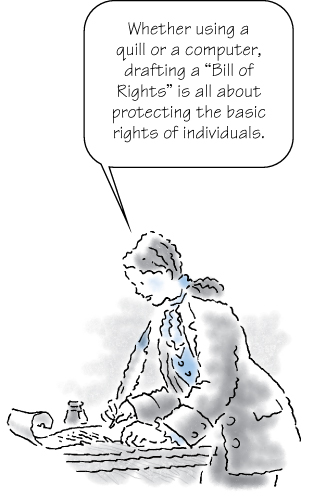
They also ensure the patient’s right to receive a full explanation of the cost of medical care, be fully informed, and be required to give consent before participating in experimental treatments because the patient exercises control over his own health care. These bills emphasize the patient’s right to acquire information about all aspects of his care.
Being adequately informed about proposed treatment, procedures, surgery, or research in order to properly consent is a patient’s legal right. So, it isn’t surprising that the topic of informed consent appears in all current medical and nursing texts and that a signed informed consent form must be in the patient’s records when invasive or experimental procedures, treatment, or surgery is contemplated.
Informed consent basically means that the patient—or someone acting on his behalf—has enough information to know what’s at risk in undergoing the proposed treatment and the possible consequences should consent to the treatment be refused or withdrawn. Nurses may provide patients and their families with information that’s within a nurse’s scope of practice and knowledge base. However, a nurse shouldn’t substitute her knowledge for a doctor’s input.
Under certain circumstances, people with mental disorders may be held incompetent to consent. When there’s a question about an individual’s capacity to give consent, a legal determination may be sought from the appropriate court or an ethics committee. The bottom line in determining capacity must be whether the person giving consent is impaired in their capacity or judgment to the extent that they do not know what they are getting into before the treatment begins.
To assess capacity to consent, a nurse may need to rely on their instincts as well as professional judgment. If the nurse believes the patient doesn’t understand, they should reassess and discuss the consent issue with the patient, the guardian (if applicable), and the doctor before the treatment begins.
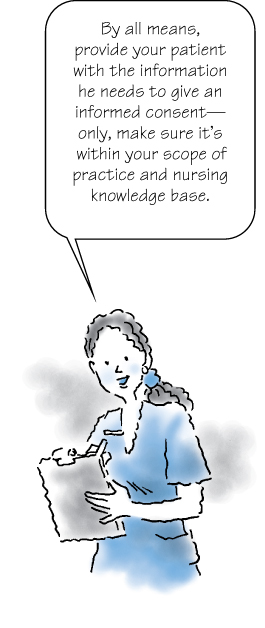
The Health Insurance Portability and Accountability Act (HIPAA) protects the privacy, confidentiality, and security of all medical information. Only those who have a need to know patient information in order to provide care for the patient and those authorized by the patient to have access to information can lawfully receive oral, written, or electronic information. Failure to comply with HIPAA, intentionally or unintentionally, could result in criminal or civil penalties.
The goal of the HIPAA is to provide safeguards against the inappropriate use and release of personal medical information, including all medical records and identifiable health information in any form (electronic, paper, and verbal). Patients are the beneficiaries of this privacy rule, which includes these six rights:
 Right to give consent before information is released for treatment, payment, or health care operations
Right to give consent before information is released for treatment, payment, or health care operations Right to be educated about the provider’s policy on privacy protection
Right to be educated about the provider’s policy on privacy protection Right to access their medical records
Right to access their medical records Right to request that their medical records be amended for accuracy
Right to request that their medical records be amended for accuracy Right to access the history of nonroutine disclosures (disclosures that didn’t occur in the course of treatment, payment, or health care operations, or those not specifically authorized by the patient)
Right to access the history of nonroutine disclosures (disclosures that didn’t occur in the course of treatment, payment, or health care operations, or those not specifically authorized by the patient) Right to request that the provider restrict the use and routine disclosure of information he has. (Providers aren’t required to grant this request, especially if they think the information is important to the quality of patient care.)
Right to request that the provider restrict the use and routine disclosure of information he has. (Providers aren’t required to grant this request, especially if they think the information is important to the quality of patient care.)Accurate documentation shows that the care you provide meets the patient’s needs and expressed wishes. It also proves that you’re following the accepted standards of nursing care mandated by the law, your profession, and your health care facility. Always document your nursing care and your patient’s response to that care.
Proper documentation communicates crucial information to caregivers so they make fewer errors. How and what you document can determine whether you or your employer wins or loses a legal dispute. Medical records are used as evidence in cases involving disability, personal injury, and mental competency. Poor documentation is the pivotal issue in many malpractice cases.
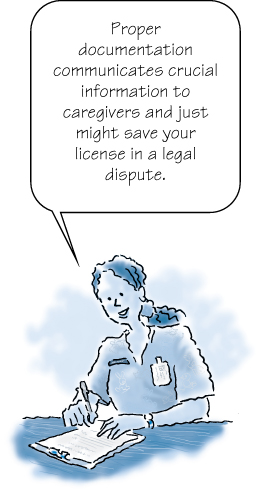
References
National Council of State Boards of Nursing (NCSBN). (2011). White paper: A nurse’s guide to the use of social media. Retrieved from https://www.ncsbn.org/Social_media_guidelines.pdf
Social media. (2011). In Merriam-Webster’s online dictionary (11th ed.). Retrieved from http://www.merriam-webster.com/dictionary/social%20media
Spector, N., & Kappel, D. (2012). Guidelines for using electronic and social media: The regulatory perspective. Online Journal of Issues in Nursing, 17(3), 1.
![]()
- The Code of Ethics for Nurses provides information that’s necessary for the practicing nurse to:
- Which of the following is a type of unintentional tort?
- The Patient Self-Determination Act of 1990 states that:
- all hospitalized patients must have an advance directive.
- hospitals must make information about advance directives available to all patients.
- it’s the responsibility of the doctor to obtain information about advance directives.
- patients may have only a living will or a durable power of attorney for health care, not both.
- Which part of the medical record can be used as evidence in court?
 If you answered all four questions correctly, bravo! Your understanding of ethics is beyond reproach.
If you answered all four questions correctly, bravo! Your understanding of ethics is beyond reproach. If you answered three questions correctly, way to go! You’ve judged correctly on most legal issues in this chapter.
If you answered three questions correctly, way to go! You’ve judged correctly on most legal issues in this chapter. If you answered fewer than three questions correctly, don’t fret! It isn’t grounds for malpractice. Review the chapter, and try again.
If you answered fewer than three questions correctly, don’t fret! It isn’t grounds for malpractice. Review the chapter, and try again.Outline
